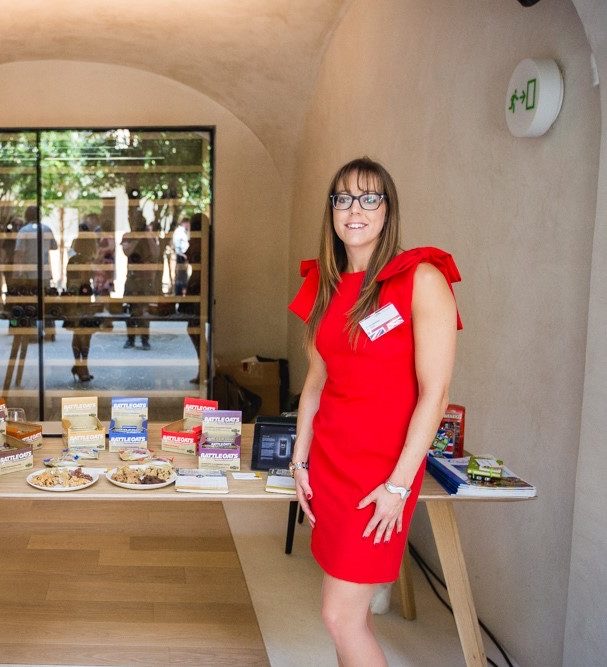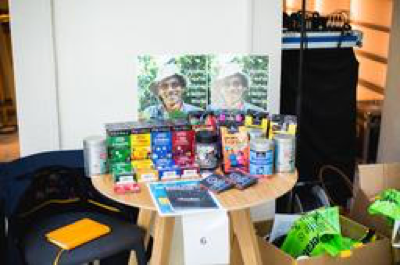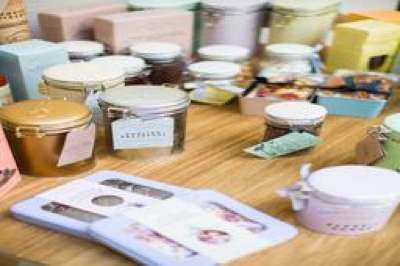Why differing global food trends matter to your business: a snapshot from Slovakia

Herbal tea, free from, and energy bars: comparing the trends internationally
In the UK, 165 million cups of tea are consumed every single day. It’s no wonder every time we go abroad, someone asks us if we really do only drink tea (and if we live in London and have seen the Queen). But we aren’t the only tea-loving nation – Slovakia drinks its fair share, too, as Bolst Global found out when asked by the British Chamber of Commerce in Slovakia to bring a selection of UK brands to a Meet the Buyer event in Bratislava, an event which strengthened our insight and in-depth understanding of the Slovakian market and the trends which differ there from the UK. A huge herbal tea industry, a steadily growing range of Free from products, and an extremely fast sales growth among energy bars are just some of the things we discovered.
But how to interpret the data in comparison to our familiar UK consumer habits? It’s not as easy as you may think.

Britain, Bratislava and Black Tea
Unlike in Britain, Slovak consumers overwhelmingly favour herbal and fruit teas, with this sector claiming a retail volume share of 61% in 2016, and a 3% retail volume growth (Euromonitor). While we Brits might reach for a traditional cuppa in the morning to wake us up and prepare us for the long day of talking about the weather ahead, Slovak consumers instead cite the health benefits of tea, using herbal and fruit teas to prevent or cure illness.
At first glance, this might seem the perfect potential foreign market for a successful herbal tea manufacturer here in the UK, where green teas saw a huge 67.5% growth in 2016 and more and more consumers turning to less traditional teas. If they are already popular in Slovakia, perhaps it will be easy for a UK-based tea company to thrive there? Not quite. It is also important to consider the correspondingly more crowded competitive market, as well as the possibility that Slovaks will already have tried and trusted national brands.

Free-from… outrageous labelling?
In the UK, this sector is worth a huge £969 million, and is the fastest growing market for gluten free products. People are increasingly turning to products which do not contain gluten, lactose or meat for both lifestyle and dietary motivations and as such, there is a wide range of products and brands available, not only in specialised health chains, but also in supermarkets and convenience stores.
In Slovakia, however, this is a much smaller sector, worth £29 million. However, recent years have seen new product launches – particularly in private label brands – although labelling legislation requires that products must not be marked with claims advertising that they are, for example, suitable for people with diabetes. After all, even diabetic foods contain sugar and must be eaten in moderation! This being said, retailers often find loopholes and you will find such products stored on a supermarket shelf marked as advertising these health benefits, meaning a health food can still find its way to a target audience without making bold (and illegal!) claims about suitability for a certain group.

Igniting the energy bar brands
The Slovak market is certainly benefiting from an increase in snacking and a habit of skipping breakfast and choosing a simple biscuit bar instead, and so it is no surprise that one major category which has seen a huge increase is that of energy bars. Among sweet snacks, energy bars saw the fastest current value growth, with an increase of 49% in sales (Euromonitor).
This is a trend which has been mirrored in the UK, an increase in the consumption of sweet biscuits and cereal bars between 2011 and 2014, and a decrease in the consumption of chocolate biscuits in the same time. Fears and confusion about the effects of sugar can be found in both countries, as can consumers’ search for a solution to on-the-go snacking and breakfasts. This concern may be felt more strongly in Slovakia, however, where campaigns urging reduced consumption of sugar have led some biscuit manufacturers to pledge a lower sugar content, as previously many individual biscuits could contain upwards of 30g of sugar, showing a growing consumer awareness of food in relation to health.
Lower sales may not just be down to health concerns, however – some studies have found an increase in home baking to be responsible, citing popular culture influences such as The Great British Bakeoff!
Intrigued by the differences between different cultures and their consumption habits? Want to know how we at Bolst Global can use our market insight and experience to help your business gain traction in a foreign market? Contact us and we will be happy to help with any queries you may have.
*Data from Euromonitor and Keynote, accessed 08/17
For details on the export services we provide, please click here
